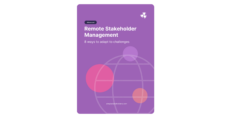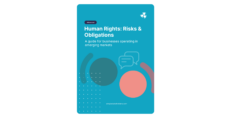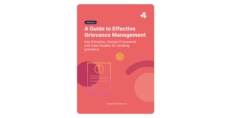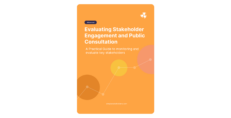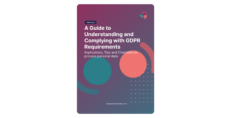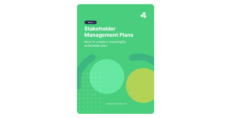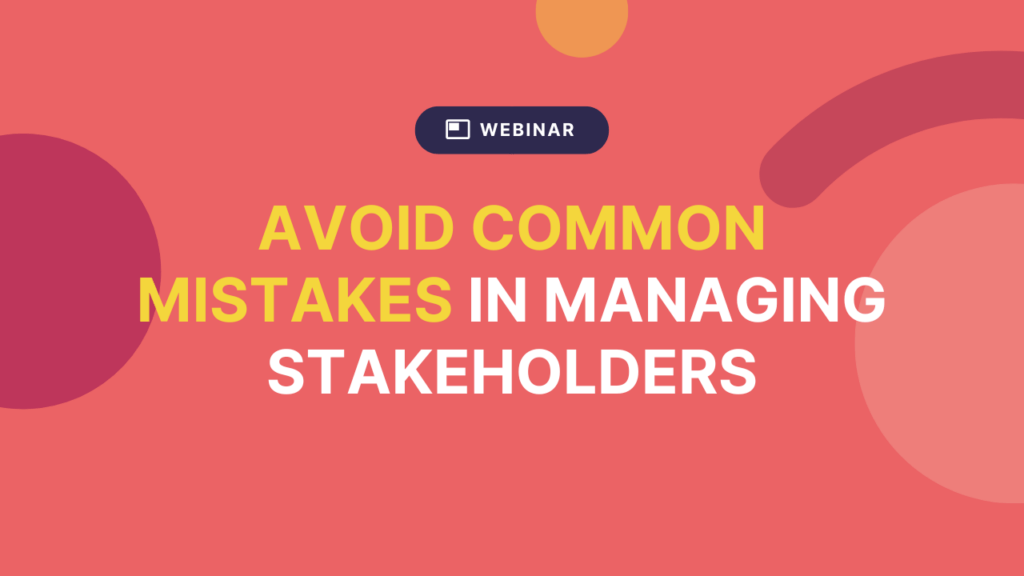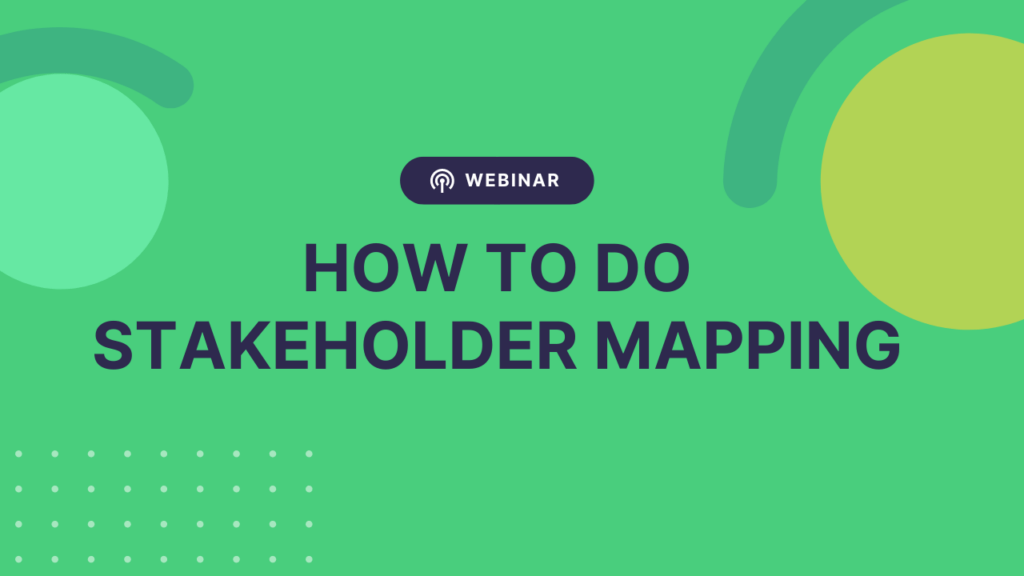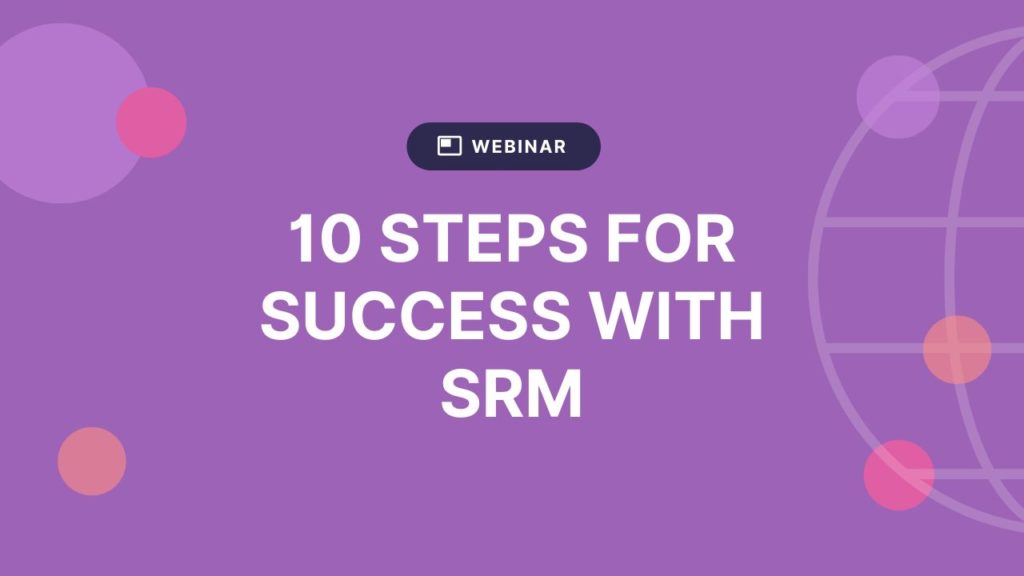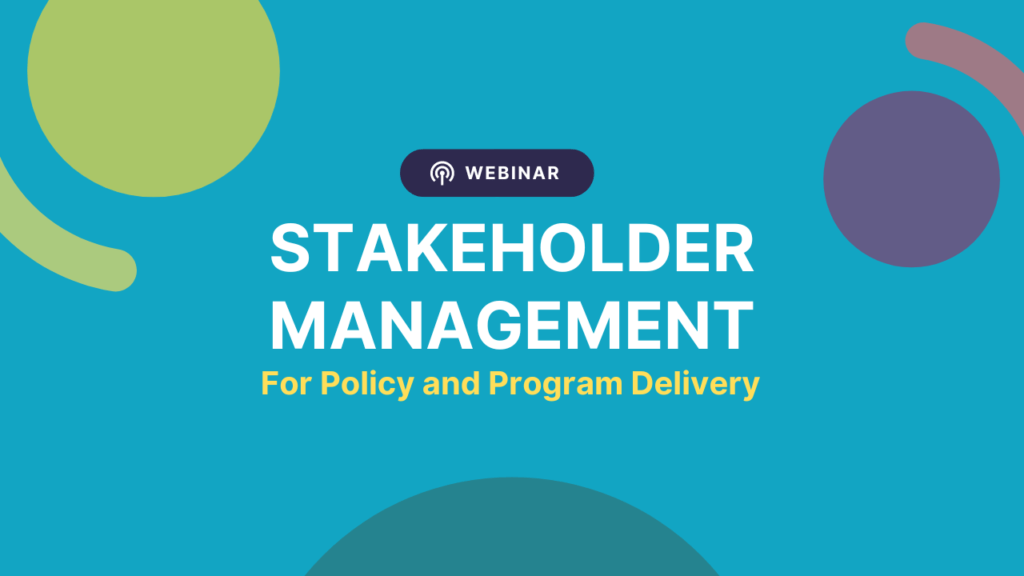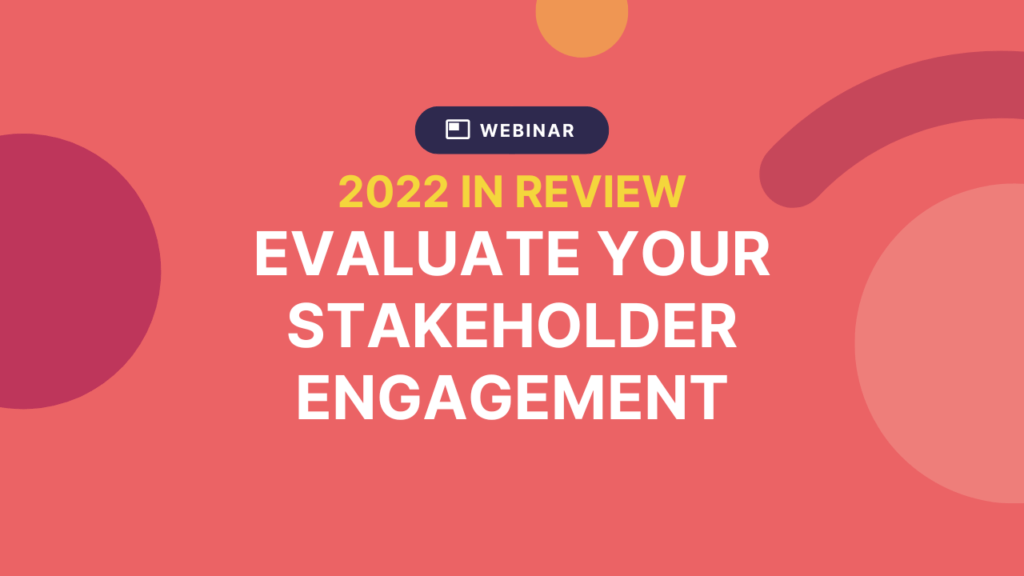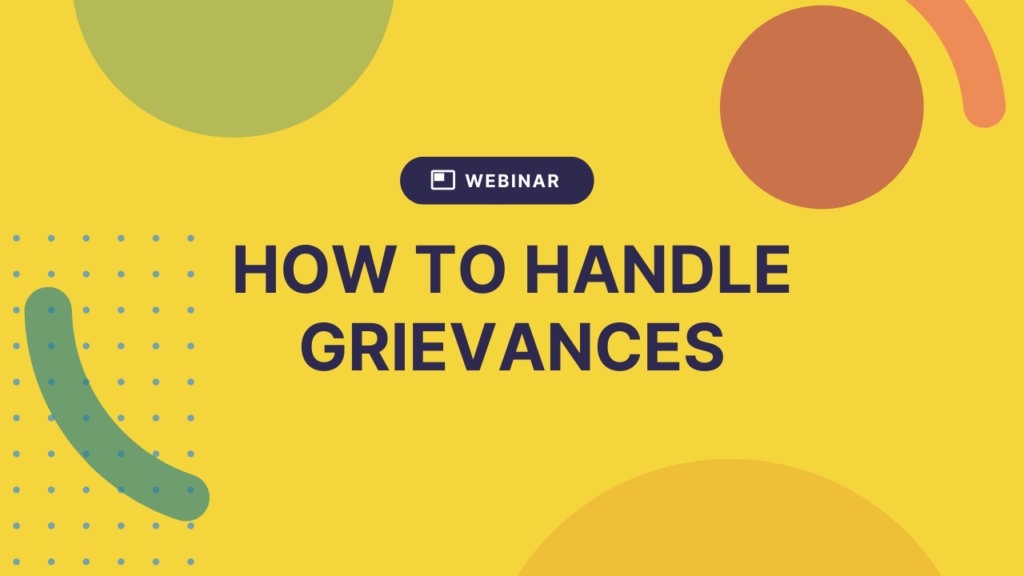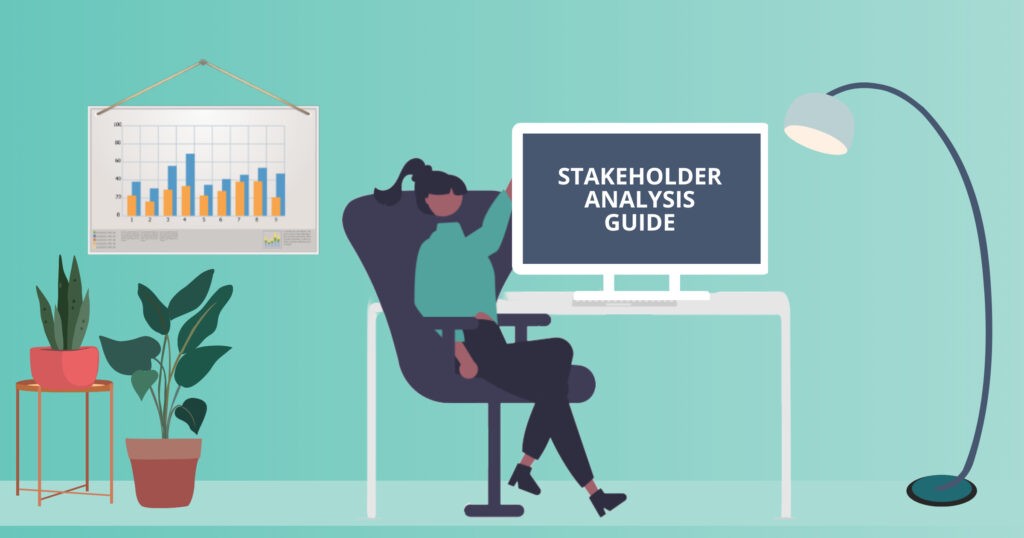Policy Consultation & the Importance of Stakeholders
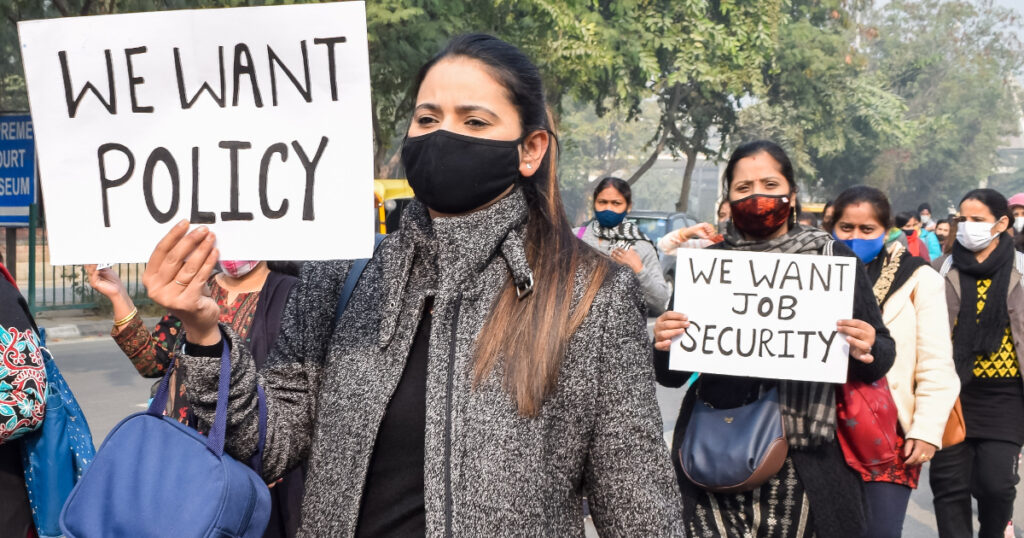
Want to know why or how to involve stakeholders in developing or implementing your policy?
Consultation and stakeholder engagement play a critical role in the policy making process, with real benefits outside of simply meeting your legal obligations.
So, we’ve put together some of our best insights into why stakeholders matter in policy and steps to engage stakeholders in policy making.
Firstly, a quick definition:
What is Policy Consultation?
Policy consultation is a type of stakeholder engagement. It refers to the participatory process that is used to develop, design, implement, or review policies. Typically, this involves government departments or organizations consulting with community members and impacted groups on public policies that impact them — but in some cases, private organizations may also consult with their stakeholders on their internal policies.
Stakeholder engagement in policy development can involve a variety of methods, from focus groups, interviews, and surveys to volunteering, advisory panels, and working groups.
Why Stakeholders Matter for Policy Making

Quite simply, without effective stakeholder engagement and consultation, it’s much harder and riskier to design and implement good policies. Here are some of the reasons why engaging with your stakeholders matters:
Build Better Relationships
Stakeholder consultation can help you build relationships within the community — and these can be a great foundation for designing and implementing policies. Strong stakeholder relationships can help to facilitate trust, credibility, understanding, collaboration, and cooperation.
And of course, by connecting with stakeholders, you may be able to tap into knowledge, experience, and skills that will help you develop or implement the policy.
Build Social Capital
Opportunities to get involved in policy consultation can help build social capital within the community, and this can enrich the community itself and build resilience. People can develop a stronger sense of belonging, foster new connections, and bond over shared interests — which they can continue to benefit from even after the consultation ends.
Build Trust
Consulting with stakeholders as part of the policy process can help to show that your organization is being transparent and accountable. This can help to build confidence in the work you’re doing and bolster trust in your organization.
Better Intelligence
After consulting with your stakeholders, you’ll almost certainly have a more complete picture of the situation to base your policy on. Local people often have valuable knowledge, innovative ideas, and a deep understanding of their environment and community. Stakeholder consultation is also an opportunity to hear from broader, more diverse perspectives that you’d otherwise miss out on. This ensures that your project and policy reflects what’s needed from the impacted stakeholders and is more likely to be supported by the community.
Lower Risk
Another benefit of stakeholder consultation for your policy is that some of the insights you gain will help to identify potential adverse consequences. This will help you put measures in place to reduce your risk of unintended consequences.
Reduce/Manage Conflict
Consulting with stakeholders can identify potential opposition and conflicts early on, rather than further along in the project when it may be more difficult to manage. It can also give people a sense of control over changes that impact them, let them have a say, and encourage them to buy-in to the new or updated policies.
Meet Legal and Human Rights Obligations
Some policies require stakeholder consultation in order to meet legislated requirements, showing evidence that the policy (or change) is needed and that you’ve done your due diligence by engaging with stakeholders. Plus, community consultation is also an important part of ensuring human rights obligations are met. In fact, stakeholder engagement forms part of the UN Guiding Principles Reporting Framework for company reports that deal with human rights issues.
Read more on this topic inside our book on Human Rights, Risks & Obligations.
How to Engage Stakeholders In Policy Development
Stakeholder engagement for policy development follows a similar process to other engagements. It involves 5 key steps:
Step 1: Get Strategic
The sooner you can begin stakeholder consultation for your policy, the better. But before you reach out to stakeholders, it’s important to start with your goals and objectives. Consider:
- What are your objectives for the stakeholder engagement?
- Why do you want stakeholders to get involved?
- At what stages of policy making and implementation will you engage people?
- What does success look like for your policy consultation?
Step 2: Identify Which Stakeholders Should Consult on Your Policy
When identifying stakeholders and creating your list (including contact information), consider who may be impacted by, have an influence on, or an interest in your policy. You may not be able to engage with all your stakeholders (and certainly not all in the same way), but you’ll soon solve this challenge in the next step.
Step 3: Get to Know Your Stakeholders
Now it’s time to do stakeholder analysis and stakeholder mapping. In short, this involves:
- Noting each stakeholders level of impact/influence/interest
- Noting any relevant demographic information
- Noting issues, interests, and preferences
- Noting stakeholder expectations (especially level of involvement in your consultation)
- Segmenting stakeholders into groups based on the above analysis
Step 4: Plan Your Policy Consultation
When planning the consultation, consider all the details and steps, like:
- What do you need to communicate?
- How will people provide feedback and at what stages?
- What resources do you need?
Determine the channels you will communicate across and how stakeholders will be able to get involved. For instance:
- Questionnaires
- Surveys
- Interviews
- Focus groups
- Phone calls
- In-person conversations
- Meetings
- Social media posts
- Open days
- Events
- Community stalls
- Markets
And decide on what roles could stakeholders play in your consultation, like:
- Volunteers
- Community advisory panel
- Working groups to oversee specific parts of the project
Step 5: Adjust, Measure, Report
The final step in policy consultation is all about measuring your progress, reporting on it, and adjusting your approach based on the findings. This includes:
- Applying feedback from the consultation
- Sharing comments and insights you gather
- Evaluating how well your consultation went
- Keeping stakeholders informed
- Generating and distributing reports to the appropriate stakeholders (at appropriate intervals or milestones)
Support Your Policy Consultation Process With Simply Stakeholders

With the right tools, it’s much easier to effectively engage and consult with stakeholders for policy making. Simply Stakeholders helps you record stakeholder information, analyze and map stakeholders, understand sentiment, manage grievances, generate reports, and much more.
Take a look at how our stakeholder software works or contact us to request a demo.
Learn More
Want to learn more about stakeholder consultation or the policy process? Check out these related resources:
4 Examples of Policy Consultation: Health, Planning, Education & Environment [Blog]
Stakeholder Management for Policy and Program Delivery [Webinar]
How to Handle Grievances? [Webinar]
7 Steps to Successful Consultation [eBook]
Stakeholder Management for Policy and Program Delivery [eBook]
Evaluating Stakeholder Engagement and Public Consultation [eBook]
Community Engagement: Definitions, Benefits & Examples [Blog]
Strategies for Successful Community Engagement in Government [Blog]
Stakeholder Engagement in Government Organizations: Definitions, Barriers & Benefits [Blog]








